Government Espionage: Analysis of Similars
During the last few days, our team focused on looking for games similar to our project proposal and analyzing them respectively.
As John Lasseter talks about Hayao Miyazaki in the Starting Point book:
For reference, we sat down and studied the rescue scene in Castle in the Sky very carefully. We didn't copy it, but we tried to pick the scene apart to identify why it worked so well. I know what's going to happen. Of course, she gets rescued. I know that. But every time I see it, I get the chills. It inspired us.
That was the whole point about the analysis that we worked on over the last few days. The idea was not simply to copy ideas from other games but to dissect them and study them to the point of understanding what these key elements that made them so outstanding and successful were. Because if we can understand what "formula" they used, we can modify that same concept with our ideas, creating our own game.
Headliner: NoviNews
Each member of our team chose a game with a theme or gameplay similar to our initial concept. I chose the game Healiner: NoviNews, a game about a newspaper editor who must choose the daily news to be published affecting the population of the fictional game city.
Game System
The gameplay of the game works very symmetrically. Every day the player performs the same functions and performs the same actions. On some days, a minor challenge/limitation may appear on how the player should choose the news or not, but nothing that makes a significant impact on gameplay.
But the point where Headliner shines is in his narrative. The game has a hyper-narrative with several stories and ramifications that can lead to totally different consequences. And to make this possible, the game uses a hidden player scoring system, where each chosen subject increases or decreases the score of each theme relevant to the plot.
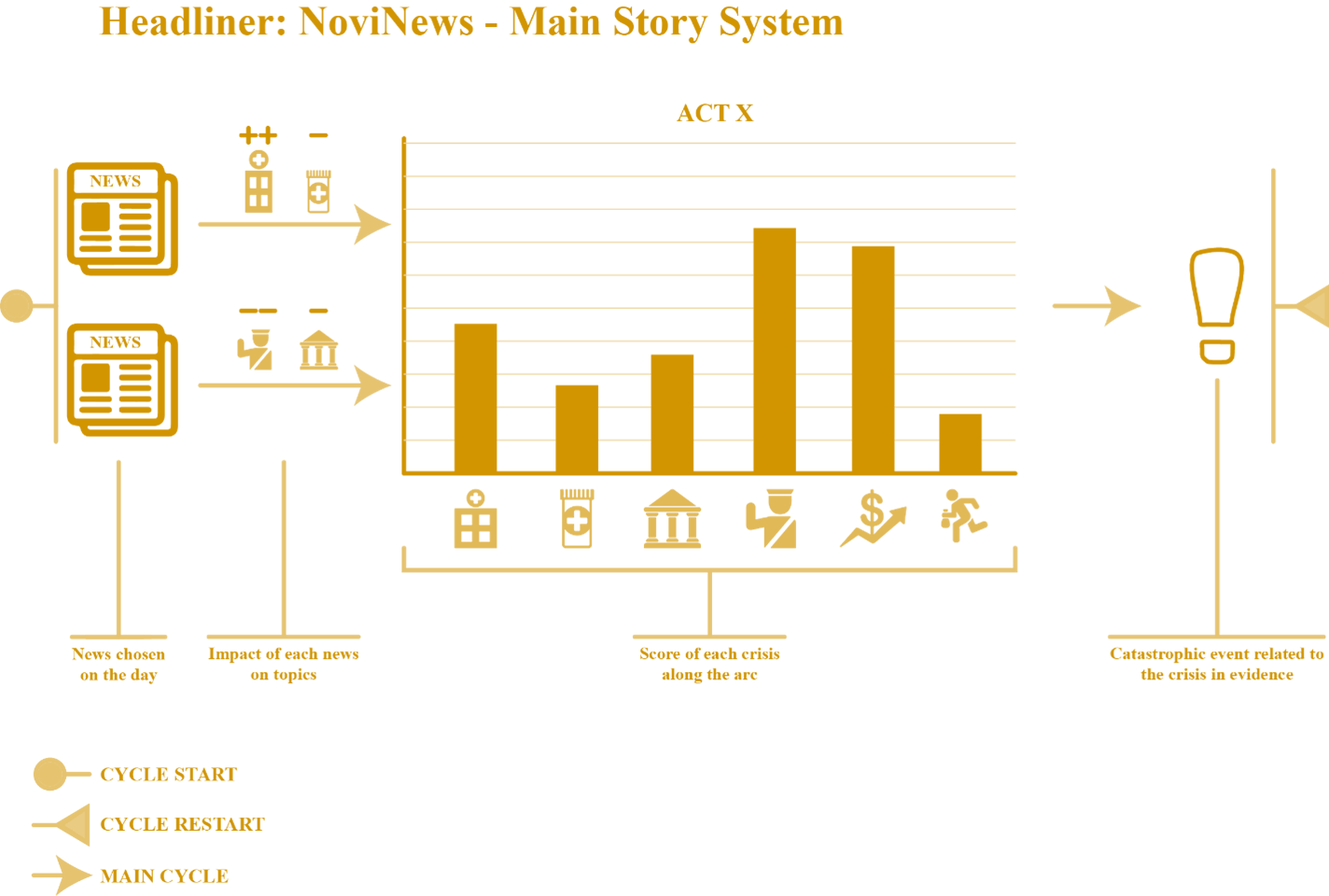
This is an extremely interesting and intelligent way to make this gameplay functional and viable. Because if we think about the narrative possibilities that each player can make - choose news and interact with other characters - we enter an exponential progression of options. Should the player choose five news for five days? We would already open 3,125 narrative possibilities in such small gameplay if we wanted to create a narrative thread for each choice. So how to deal with it? With a scoring system relevant to each story. This way, every choice the player makes doesn't instantly create a consequence but adds a score referring to its theme in this occult table. If the player starts to choose a lot of news about urban violence, this will increase the score of this topic in the table and, based on the score, the story will know which direction to follow.

The same can be said of the gameplay system involving the NPCs' narrative. In Headliner, NPCs have a concern system similar to the population; however, each NPC has their own personal concerns, including specific elements. An NPC who doesn't care about crime, for example, won't have his story affected by choices that vary the perception of crime on the population. Likewise, NPCs' stories are not only affected by the news but can also be influenced by the player's interactions with them. An NPC worried about the latest news can be soothed or even more panicky depending on the player's dialogues choices according to NPC problem report.
Moreover, unlike the main story, the narrative of each NPC is composed of only one act, having its climax only at the end. The NPC reacts to the catastrophe at the end of each main act; however - if she has no direct connection with it - it does not interfere with the NPC's narrative arc.
Story Sistem
However, this scoring system alone is not all that is needed to make a game with this gameplay proposal work in a narrative way. We still need beatmaps. Beapmaps are excellent analysis tools that help us understand how the game progress behaves or should be, avoiding repetitive moments and ensuring that the gameplay follows the necessary flow for its apex. They can help to visualizeise the game's rhythmic progression, landmark events, arcs and climax.
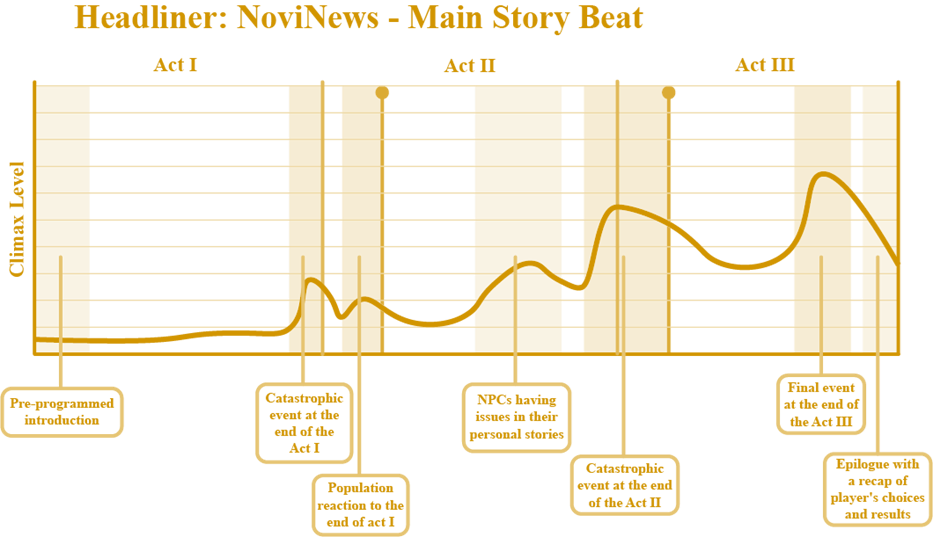
As Headliner has several endings - varying according to the hidden punctuation system mentioned above - one way to make this hyper-narrative viable is to stipulate that the key elements of the narrative will remain fixed at distinct points in the narrative arcs. Thus, if the development team chooses to create five narrative lines, it will only need to create five unique elements for each moment in question, which will activate each particular scene according to the player's "narrative score."
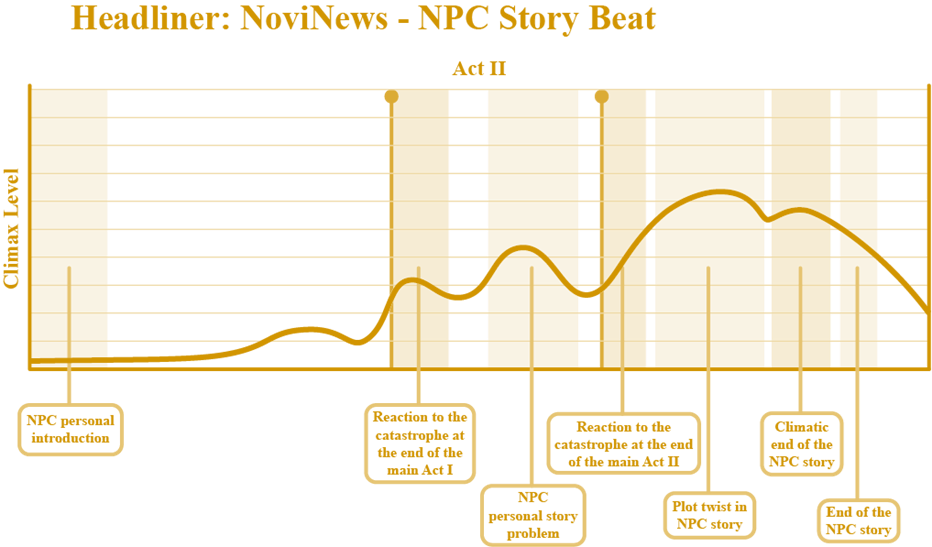
For example, suppose a player chooses news that speaks ill of the government throughout the story and acts like a complete idiot with an NPC in question at a critical moment in the plot. In that case, that same NPC may attempt an attack on the government, causing a narrative climax. However, if the player chooses to make precisely the opposite choices when that time comes, an event as revealing as the previous example should happen, such as the NPC asking the player to marry him.
As such, the developers' biggest concern will be to ensure that each distinct scene matches what is expected of it in the game's beatmap. In a game with hyper-narrative, this is essential to ensure that, regardless of the player's choice, the narrative arc will always have the expected impact and climax.
Get Under Choices
Under Choices
You are the new ruler of doomscrolling
| Status | In development |
| Authors | Zizo Mass, FarrylC, mptunney, Subject194, wilsonchan |
| Genre | Visual Novel, Interactive Fiction, Puzzle, Simulation |
| Tags | 2D, Atmospheric, brazil, First-Person, Multiple Endings, political, Singleplayer |
| Languages | English |
More posts
- Beta LawApr 05, 2022
- Last assaultMar 27, 2022
- Confidential ExperimentsFeb 26, 2022
- The user is always rightFeb 12, 2022
- Who controls the present controls the futureJan 21, 2022
- Strategy and Tactics for ControlNov 27, 2021
- Users are the Heart of a NationNov 13, 2021
- Taking South America!Oct 02, 2021
- A cultural history of fear seekingSep 24, 2021
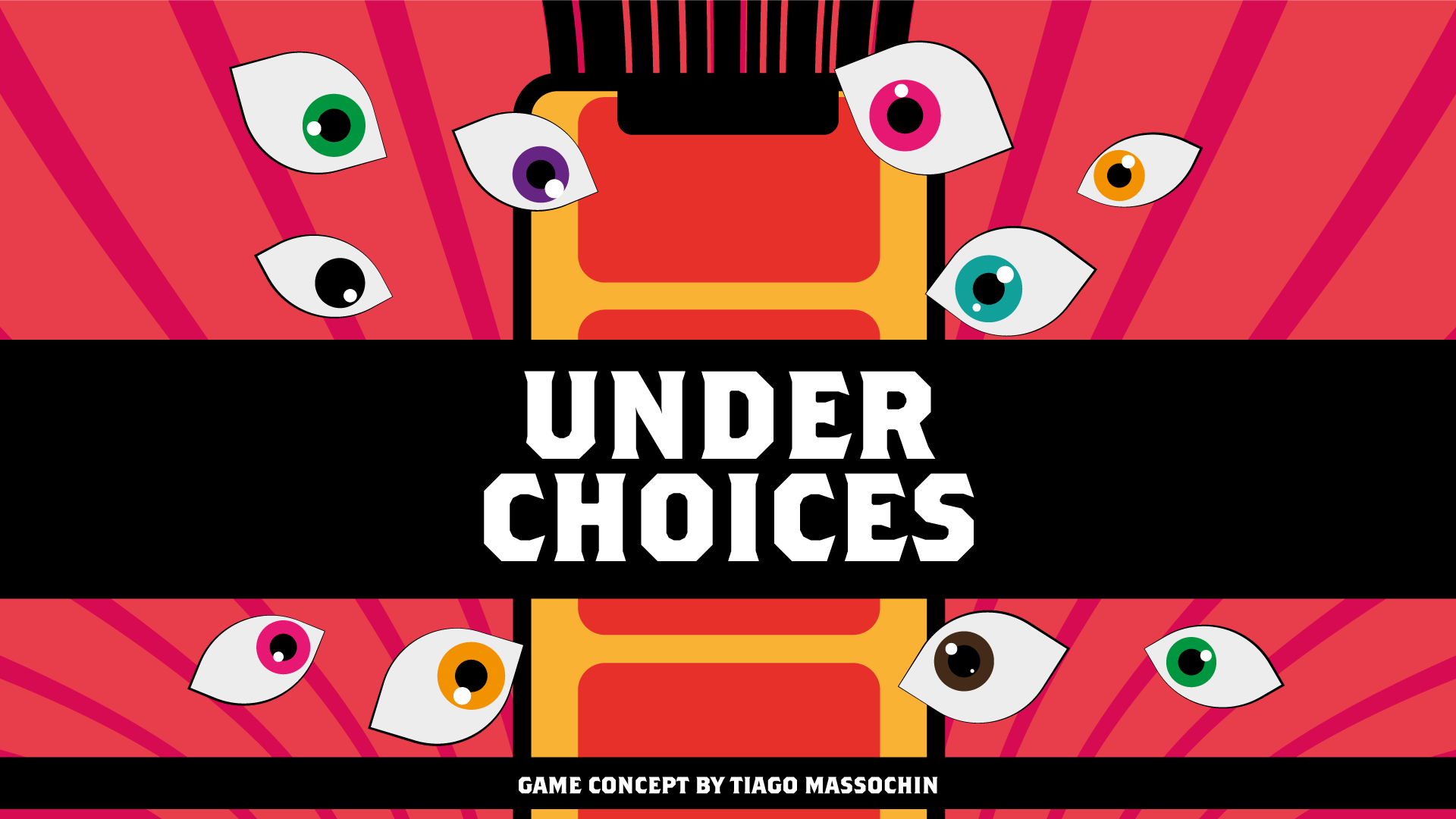

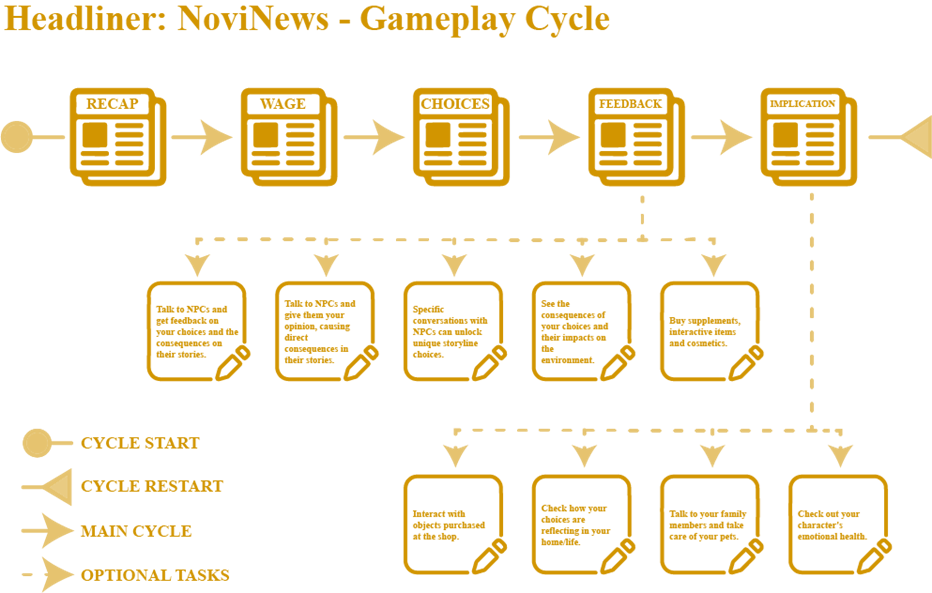
Leave a comment
Log in with itch.io to leave a comment.